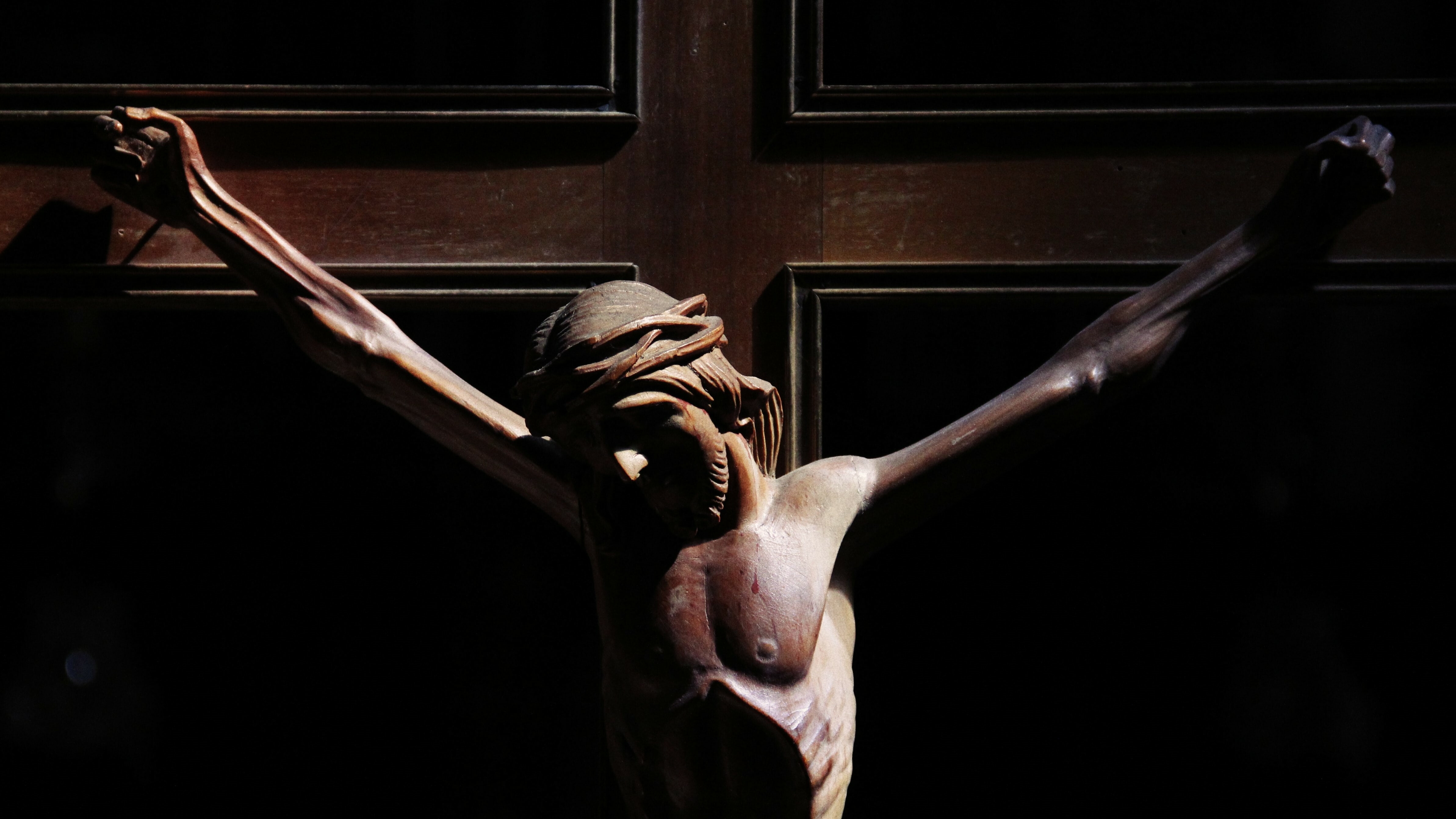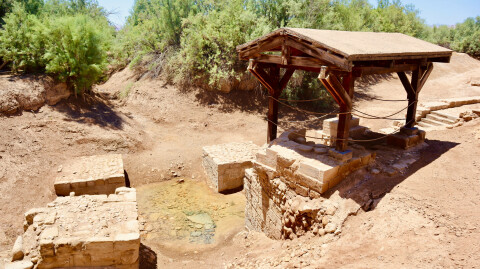TLDR: The book of Lamentations is a collection of five poems written after the destruction of Jerusalem. It puts into words the nation’s grief, and by doing so, it gives us a roadmap for our own grief. Regardless of what may be going on in our life, God will never be repelled by our affliction and our doubts.
There are two tracks for Sunday Readings in the Revised Common Lectionary. Track one for this last Sunday had a reading from the Old Testament that came from Lamentations 1:1-6, followed by Psalm 137. Track two, which Mother Beth Anne and Fr. Roldan preached on, came from Habakkuk 1:1-4, 2:14 followed by Psalm 37:1-10. At Saint Dunstan’s we follow track two, simply because some of those readings don’t always get a proper audience in our churches. I love Habakkuk and enjoy preaching from it. I have been thinking about Lamentations these last two days, however. This blog is about “the other reading.”
Imagine that you were in New York City on September 11, 2001, and you just witnessed the massive destruction of the Twin Towers. Now imagine that damage was not limited to the towers. The Cathedral of Saint John the Divine, and the Empire State Building are engulfed in flames, the Chrysler and the Trump buildings are demolished, the Waldorf Astoria and all the high towers around the city are nothing but rubble, and the once busy city looks like a ghost town. Imagine that you were a witness to the great massacre that occurred when thousands of people were slaughtered, and the streets were painted red with blood. You witnessed the destruction of the great symbol of America's freedom, as Ellis Island and the Statue of Liberty have been destroyed and lay in ruins in the Hudson River. Imagine that, after the destruction, all the inhabitants have been exiled to a faraway and dangerous country. Now imagine that for whatever reason, you are one of the few people left behind in the lonely city.
You remember going to Broadway plays in the district and to ball games at Yankee Stadium, Shopping on Fifth Avenue and going to lunch in China Town, walking with friends in Central Park and catching several concerts at night. The city used to be filled with music, art, and exciting people from around the world. You remember New Years' Eve celebrations in Central Park, parades down 42nd Street, going uptown and downtown, dreaming about one day living on the Upper West Side. You knew somebody who lived in "The Village," and you once believed that Manhattan Island was the most magical place on earth. Now with a broken heart, you exclaim: “How lonely sits the city that once was full of people! "How like a widow she has become, she that was great among the nations! She weeps bitterly in the night, with tears on her cheeks; among all her lovers she has no one to comfort her; all her friends have dealt treacherously with her, they have become her enemies."
This is what's happening in the reading from Lamentations 1:1-6. Judah, a once prosperous nation, a place of high culture, food, and architecture now lays in ruins around the year 587/6 B.C.E. Jerusalem, the capital of the country, has been destroyed. The Temple, which was the center of the city's cultural and religious life, now lays in the rubble. The magnificent castles and grand homes have been burnt. The marketplace does not exist anymore, since it became the theater of death when thousands were killed in those streets. Now, "The roads to Zion mourn, for no one comes to the festivals; all her gates are desolate, her priests groan; her young girls grieve, and her lot is bitter. Her foes have become the masters, (and) her enemies prosper."
The book of Lamentations is a collection of five poems written after the destruction of Jerusalem by someone who was one of the few people left behind by Nebuchadnezzar to care for his vineyards and his farming plantations. We know he did not go into exile because he does not reference any experience of the journey to, or life in Babylon. This fellow was forced to walk the destroyed city daily, overwhelmed with memories, filled with pain, and yet required to do a slave's day of work. Modern experts believe Jeremiah is not the author of this book, as many believed for centuries. In fact, they think the author is anonymous. The book reflects on the human experience of suffering when tragedy strikes. It asks several genuine questions: "Why does God allow suffering in the world? Is God done with us yet? Has God chosen to abandon God's people? How can we make sense of this tragedy? Is there a future left for us? Surprisingly, even though the author seems to be shaking his fist in the air at God, he blames this tragedy on human behavior. The nation is suffering the grave consequences of their political and personal sins. They have entered into the wrong alliances; they have failed to listen to the prophets; they have failed to live up to the covenants, etc. This is the author's answer to the “Why?” question.
The way Lamentations went about answering the “Why?” question is beneficial for us today. The book does not answer the questions by developing complex theological theories about human suffering. Instead, it answers the question through human emotion and then turned that emotion towards God, the place where all of our grief belongs. Many theologians attempt to build an elaborate theology of repentance and atonement out of Lamentations, and to be fair, these themes run through the book. But I believe this is not a book about theology, but a book of poetry about great human pain. This is a book about grief and what to do when our world is turned inside out. Lamentation tells religious people that it is OK to cry out to God in absolute raw anguish and despair. It is OK to ask "Why?" "Why have you let this happen?" "Are you done with us? Have you decided to leave us to our devices? Have you gotten tired of our betrayals and our hypocrisy? Have you chosen to abandon your people?
Lamentations puts into words the great grief the nation feels, and by doing so, it gives us a road map for our own grief. Many of us feel high anxiety when we experience intense emotions about God or the Church. Sadly, rather than expressing that anger, many choose to leave the Church. They turn away in despair, forgetting that the one they are walking away from is the only one who can help. Lamentations today reminds us that God can take our anger and despair, our recriminations, our questions, our anguish, and our fear. Our raw emotions do not repel God, just the opposite, God remains faithful, present, real, ever-loving, and ever-patient. God longs for the whole of you, not only the good parts of you! He wants your totality, your undivided and complete self. Like a loving parent, God will not be repelled by your suffering.
The author of Lamentations did not know what we know. He did not know that in the fullness of time, God would send his only Son to die on the cross for us. The author did not realize that God's own Son would one day turn to Lamentation to give voice to his great agony on the cross. God himself would die on a cross in Jerusalem for the salvation of humanity. The answer to the question, "Are you done with us yet?" would come in the form of a Sacrifice. God is most certainly not done with humanity. And, if you ever feel abandoned by God, all you need to do is look at the cross of his Son. Look at him dying there for you and I. Christ knows what pain feels like, and will be there for you when you are in pain. He knows what abandonment feels like and he will be there for you when you are dealing with abandonment. He knows the sting of rejection and betrayal, and he will be there for you when you feel betrayed or rejected. He knows what dying feels like, and he will be there for you every step of the way as you deal with your mortality. He knows your pain, your doubts, your anger, your anguish, and your fears, and he longs to offer you comfort and grace.
May his love cover you with comfort today and always,
Fr. Roman+





